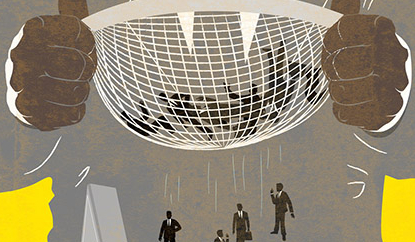国家税务总局关于实施对设在中西部地区的外商投资企业给予三年减
|
国税发[1999]172号 GuoSuiFa [1999] No.172 September 17, 1999 The state bureaus of taxation of various provinces,antonomous regions,municipalities directly under the Central Government and municipalities separately listed on the State plan, local taxation bureau of ShenZhen: Recently, the State Council has decided that, within three years after the expiry of the period of implementation of the current tax preference policy, the business income tax may be collected at a reduced 15% tax rate from the enterprises with foreign investment under the State's category of incentives which are established in the central and western areas. Relevant issues concerning the implementation of this tax preference policy are notified as follows: I. On the scope of areas where this policy may be implemented The central and western areas where this tax preference policy may be implemented shall include: all administrative areas of Shanxi, Inner Mongolia, Jilin, Heilongjiang, Anhui, Jiangxi, Henan, Hubei, Hunan, Chongqing, Sichuan, Guizhou, Yunnan, Tibet, Shaanxi, Gansu, Qinghai, Ningxia and Xinjiang, 19 provinces (autonomous regions and municipalities directly under the Central Government) in total. II. On the scope of industries in which this policy may be implemented The enterprises with foreign investment under the State's category of incentives for which this tax preference policy may be implemented shall be the enterprises with foreign investment engaging in the projects in the category of incentives and the restricted category B under the Catalogue for the Guidance of Industries for Foreign Investment which is approved by the State Council and promulgated jointly by the State Planning Commission, the State Economic and Trade Commission and the Ministry of Foreign Trade and Economic Cooperation, and engaging in key industries and projects approved by the State Council. III. On the calculation of preference period The three years after the expiry of the period of implementation of the current tax preference policy shall be the preference period for this tax preference policy. The three years after the expiry of the period of implementation of the current tax preference policy mean the three years after the expiry of the period of tax reduction and exemption enjoyed as specified in paragraph 1 of Article 8 of the Income Tax Law of the People's Republic of China for Enterprises with Foreign Investment and Foreign Enterprises (hereinafter referred to as the Tax Law) and subparagraph (8) of paragraph 1 of Article 75 of the Rules for the Implementation of the Tax Law. If, within the period of this tax preference, an enterprise is determined as a product export enterprise and its export value accounts for more than 70% of its output value in a year, its business income tax may be reduced by a half again according to the provisions of subparagraph (7) of paragraph 1 of Article 75 of the Rules for the Implementation of the Tax Law, however, the tax rate after the reduction of a half may not be lower than 10%. IV. On the examination and approval procedures The enterprises which may enjoy this tax preference policy shall submit the application, business license, articles of association, information about their production and operation and other relevant materials to the local competent tax authorities for examination and approval. The specific period of application, examination procedures, power limits of approval and measures for the implementation shall be formulated by the competent tax authorities at the level of province (autonomous region, municipality directly under the Central Government or municipalities separately listed on the State plan) in accordance with the provisions of relevant tax laws and regulations and this Circular and in combination of the actual conditions of their respective areas, and shall be reported to the State Administration of Taxation for the record. V. On the time of implementation This tax preference policy shall enter into force as of January 1,2000. The enterprises which, on January 1,2000, are still within the period of tax preference specified in paragraph 1 of Article 3 of this Circular, may enjoy this tax preference policy within the remaining period of preference from January 1,2000; and the enterprises which, on January 1,2000, have gone beyond the period of this preference, may not enjoy this tax preference policy retroactively. |








